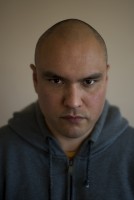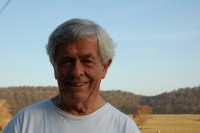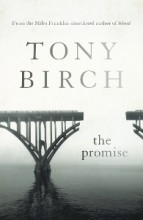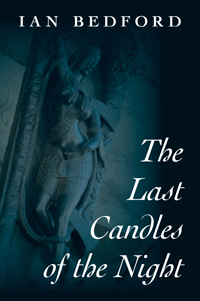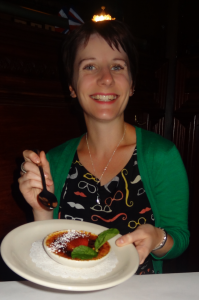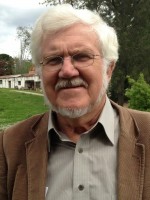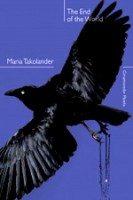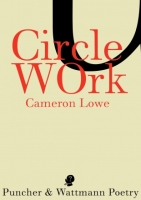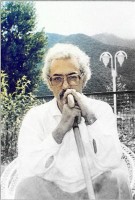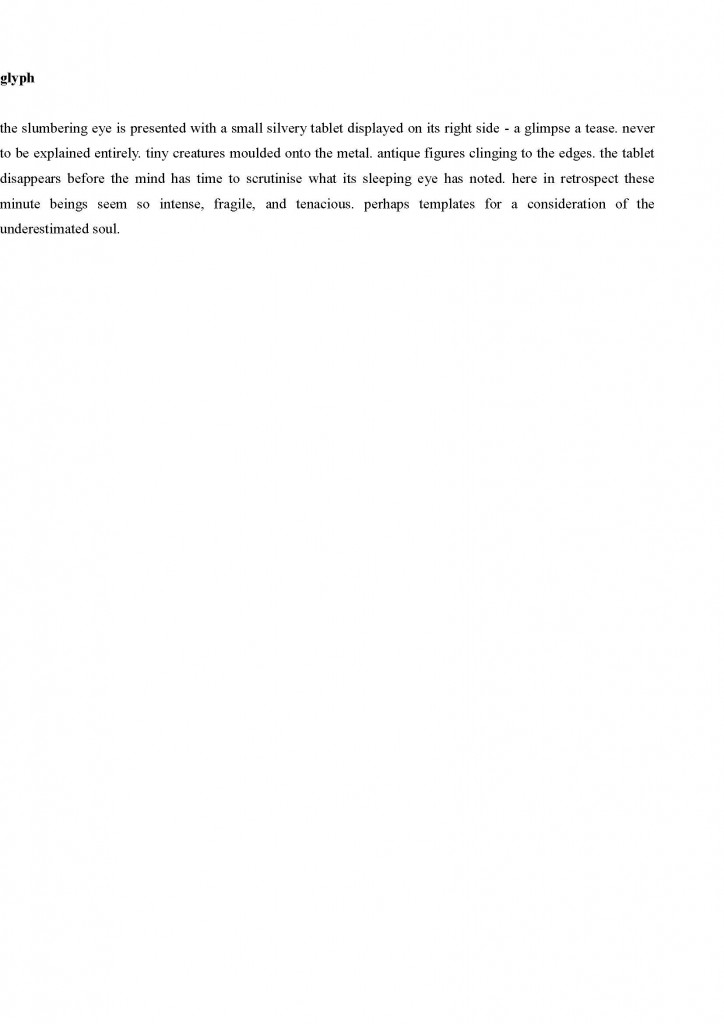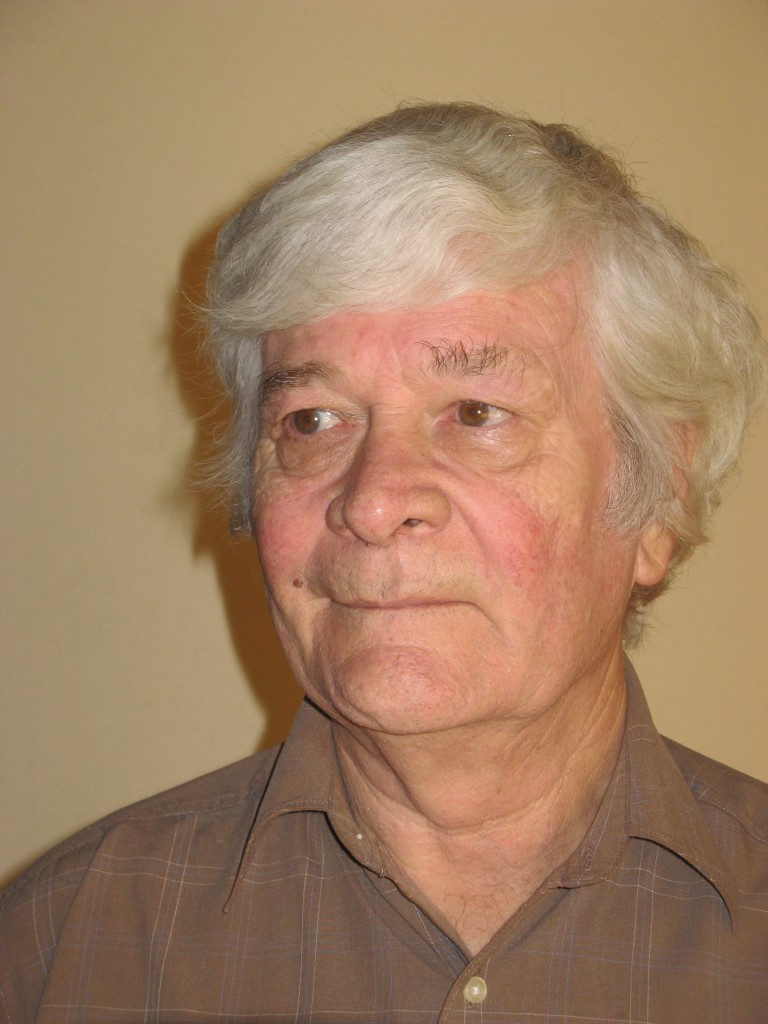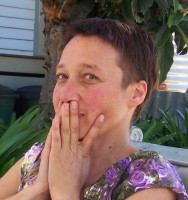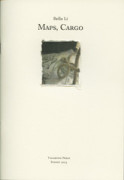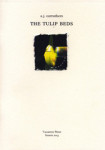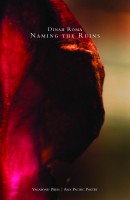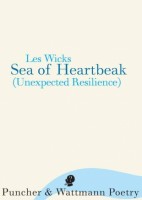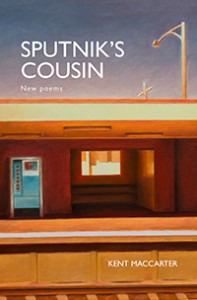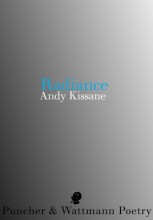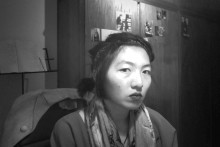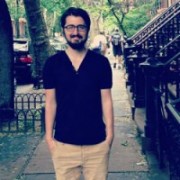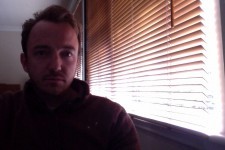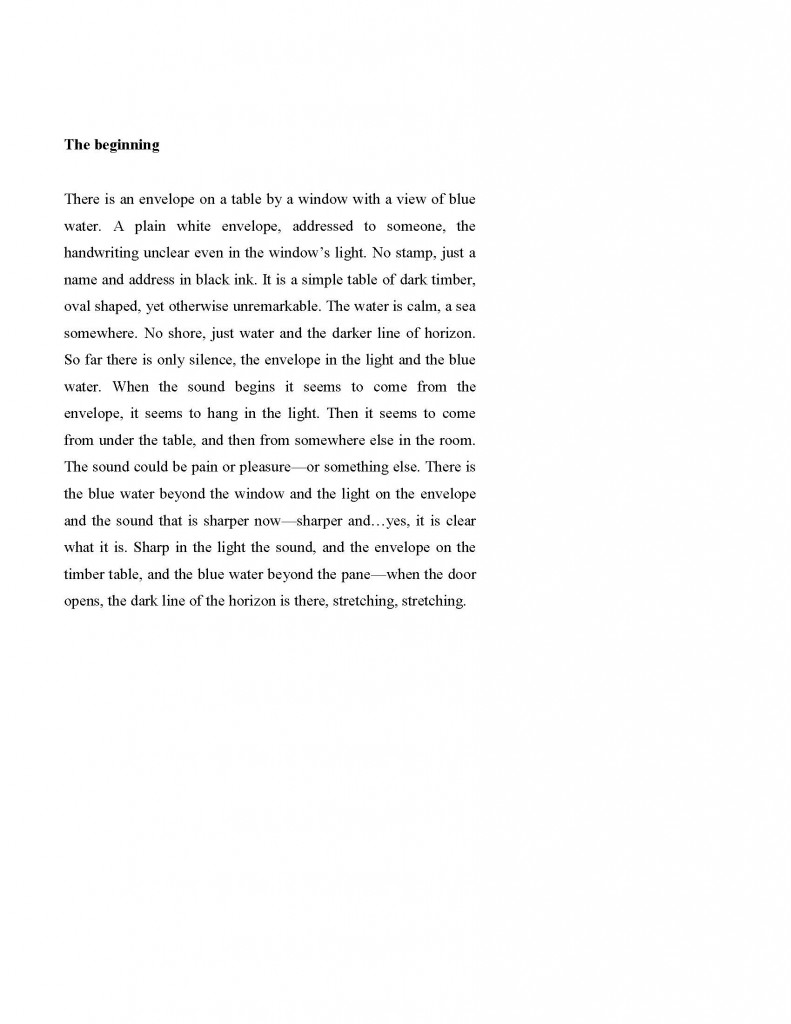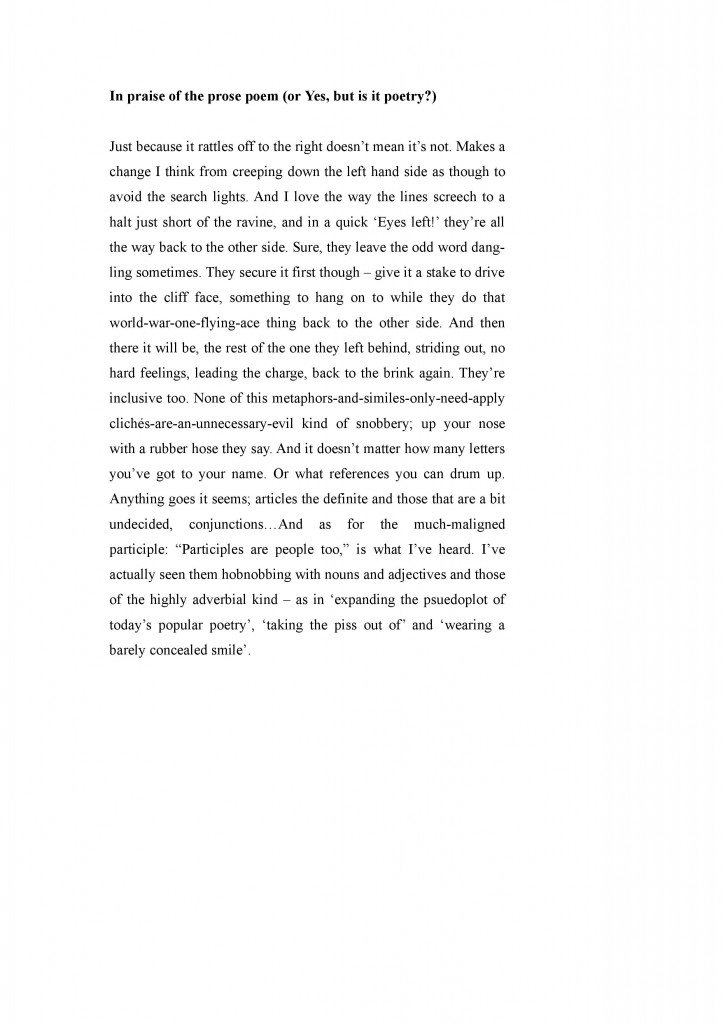 Daniel Young is a Sydney-based software developer, reader, writer and editor who was born and raised in Brisbane. He has had short fiction published in Issue Two of Hello Mr. Magazine and flash fiction in Seizure and Cuttings Journal. He is struggling to write a novel while remotely studying an MA (Writing) through Swinburne University. He is the founder and editor of Tincture Journal.
Daniel Young is a Sydney-based software developer, reader, writer and editor who was born and raised in Brisbane. He has had short fiction published in Issue Two of Hello Mr. Magazine and flash fiction in Seizure and Cuttings Journal. He is struggling to write a novel while remotely studying an MA (Writing) through Swinburne University. He is the founder and editor of Tincture Journal.
The Jazz Band
The jazz band walked onto the stage, quiet and unassuming, dressed in jeans and plain black t-shirts, and began to shift things around without looking at the audience. The shuffling and scraping of their chairs, the tuning of their instruments, the precise placement of their glasses of water and bottles of beer; it may have been part of the performance—they were known for including such things at the beginning of their albums—so the crowd began to hush, their conversations dispersing into the auditorium, hanging wastefully in the air before being forgotten, lost for all time.
When Billy suggested the jazz band, Alex baulked at the idea but went along with it just the same. After exchanging messages and flirting online for what seemed like an eternity, they finally decided it was time to meet. Billy was attractive: a cute Aussie guy in his mid-twenties with a stable job. He didn’t have a gym-built body, but Alex didn’t care about that and he tried more than once to arrange a date. He’d been nearly ready to give up, coming to the conclusion that Billy was either intractable, disinterested or already taken. A few times he’d met guys online only to later find out they already had a boyfriend; it seemed to come with the territory, although Billy didn’t seem the type to play around. He had a quiet understated sincerity that Alex liked. When Billy suggested an improvised jazz concert, Alex wasn’t going to say no, although he did wonder exactly what he’d agreed to.
For what felt like a few minutes already, the drummer had been scraping something metallic across the top of one of his drums. Alex had never been to anything like this back in Singapore. He closed his eyes and ignored the percussionist’s noises, wishing they’d just gone for a drink instead.
Alex’s mother had phoned last night, berating him for not buying a new phone card, for not calling home more often. She wanted to know everything, and each tidbit of news was relayed in a shouting voice to his dad before the conversation could continue. They both wanted to visit him in spring, but he told her that Australia was too boring, especially Brisbane; he would go home instead. Somehow he didn’t seem ready to share his Aussie life with them. He’d begun to make this town his own, although he did miss home sometimes. He thought about the hawker food stalls back home and started dreaming of claypot chicken rice with delicious lap cheong sausage; a hardened rice crust formed on the base of the claypot, and he savoured the change in texture as he reached the end of the dish. The thick wet humidity of the Singaporean air embraced him tightly as his head tilted forwards, waking him up. He glanced at Billy, hoping his daydream had gone unnoticed. Imperceptibly, the percussionist’s scrapings had been joined by the pianist’s hypnotic light touch; his fingers danced across a wide range of keys and the gentle tapping somehow resulted in a deep and complex reverberation that gradually magnified as it spread throughout the performance space.
The double bass joined in, striking just three notes slowly in a short melody, repeating it again and again. Alex began to dream about his mother’s famous Nonya Laksa.
Billy drew his attention from the stage and looked at Alex, sitting there, eyes closed. Absorbing the music to its full effect, or falling asleep? It didn’t matter. He’d agreed on the date because he hated coming to these things alone, but he had no expectation that Alex would enjoy it. The double bass player was plucking at the thick strings more fiercely now; each bass-laden thwap was a punch in Billy’s side. One of them fractured his rib, recalling that day, three years ago now. The others landed in a dull thud that he knew would emerge in the morning as a beautiful deep-purple bruise. He somehow enjoyed reliving the past, letting the music beat him senseless. It replaced all traces of the present.
The drummer was still scraping something across the top of his drums, tracing it in a slow circular motion. A set of house keys? Billy realised with a start that Qiang still had a spare key to his apartment. He hadn’t bothered to change the locks after Qiang left Australia. The scraping continued, now joined by the occasional sharp tapping of hi-hat cymbals. Tap-tap-tap, an insistent woodpecker keen to crack open his skull and burrow into his brain. He tried to keep each of the band’s instruments distinct in his head, tracking the almost imperceptible ways they were changing over time, wondering how the music had somehow made its way from Point A to Point B. The initially disparate parts had merged to become a single swirling mess.
The doctor had been friendly today. A GP in Brisbane’s Fortitude Valley, just across the road from where he was sitting now. The clinic, being in a so-called “gay area”, administered lots of sexual health check-ups, and the staff were good at asking the necessary questions without getting too nosy or raising an eyebrow.
“I see it’s your first time here. Is there anything else I can help you with today?” The doctor was tall and handsome, but not Billy’s type.
“Oh, no thanks. My normal GP is close to home but I came here because it’s close to work. Just the tests today.”
The doctor smiled, not skipping a beat. “No worries, just a few questions first. When were you last tested?”
Billy answered. Yes, it had been a while. And yes, he was sexually active. Though not so much lately. No, he had no real reason to be worried, but… you know how it is. He didn’t add that he rarely met new people these days because he couldn’t trust anybody and preferred to stay home alone and drink. Last night he’d received a message online from an anonymous person, advising him to get tested. It could be a prank—the person’s dating profile didn’t even have a photo—but it was scary stuff nonetheless. Enough to convince Billy that it was time to be tested again. No need to tell all that to the doctor.
As the blood left his veins and filled the nurse’s syringe, he sat there and blinked, wondering what his future might hold and whether or not he even cared. The nurse taped a cotton bud gently over his arm and he left the clinic. The results would come and could not be changed. His boss was out of town so he extended his lunch break and walked along Brisbane’s murky brown riverfront, trying to get as far from the office as possible. The sun beat down, even on this winter day, and people jogged past with confident strides. He thought of his small high-rise apartment in the leafy green inner west, clinging as it was to its own bend in the river, looking across to the towering heights of Highgate Hill. He could go home—nobody at work would care—and he could spend the afternoon with a bottle of Shiraz, some music and maybe a warm bath. But he was meeting Alex tonight for the jazz concert and the theatre was close to his office; if he went home, he’d never find the motivation to go out again. He thought about cancelling as he walked back to the office. It wouldn’t be hard to find some excuse.
“A Scotch and dry and a Corona with lime thanks,” said Alex, smiling at the bartender and admiring his rounded butt as he turned to fetch a clean glass. Alex didn’t drink often, but Billy wanted one and it might help the rest of the concert pass by more quickly. The first half had been interesting in a way and it surprised him that traditional instruments could be used to create such sounds, but it had felt like it might never end. When he wasn’t nodding off, Alex tried to make a connection between the musicians’ actions and what he was hearing, but the link seemed so tenuous that he wondered if the whole thing was just a pre-recorded charade. No, it couldn’t be that—he just didn’t understand this stuff. At least Billy was something different; something he hadn’t yet experienced since coming to Brisbane to study business and hospitality management. He represented something other than the usual late nights out in tiny gay bars, with the same people every week dancing the night away. Nights that would often end with him waking up next a stranger in a cloud of awkwardness and sour morning breath. It never felt good afterwards, but it was a change from life back home.
The bartender returned with the drinks and Alex paid, resolving to just try and enjoy the second half of the show. Maybe they could grab a quick bite to eat later on.
“Thanks,” said Billy as Alex passed him the Scotch. “What did you think so far?”
“It was… interesting. Different,” replied Alex.
Billy rolled his eyes but still smiled that cheeky little boy smile that had attracted Alex so much in the first place.
“What music do you like? Kylie? Gaga? The usual shit?” he asked.
“That stuff’s all OK, but I prefer Chinese pop stars. Do you know Faye Wong?”
“Hah! I’m not a huge fan, but I saw her in Chungking Express. She’s kind of old now, right? It’s all about K-Pop these days. But I loved that movie. You know, I randomly saw it on the world movie channel about five years ago and I think I’ve been a rice queen ever since…”
“So you only like Asian guys? Here in Brisbane it’s mostly just the really old white guys chasing me. Lots of young people put ‘no Asians’ in their dating profile.”
Billy shrugged and said nothing.
“Don’t be shy, it’s fine. You’ll like me then, since I’m a potato queen,” grinned Alex, poking him in the belly in a teasing way. His belly was soft. “I love Wong Kar-Wai’s films too. To be honest, I’m more interested in film than music. I’d study that if my parents would let me…”
“The film festival starts soon, maybe we can check some stuff out? I love Korean films, and they also have a British and Irish showcase that looks interesting. And lots more.”
Alex watched as Billy drank his Scotch, finishing it with one last gulp. He seemed excited now. When they’d met before the concert he’d been shy, maybe even aloof. On the internet Billy was a tough nut to crack, but Alex was now thinking that his persistence might have been worthwhile.
A buzzer rang and Alex placed his arm in the small of Billy’s back, guiding him from the foyer back into the theatre space. The room was cool and the warmth emanating from Billy’s body seemed like a generous offering. They took their seats.
Billy didn’t know why he preferred Asian guys and the inevitable question always embarrassed him. It felt wrong to choose partners based on their race, and he wasn’t proud of it, but he also couldn’t deny his preference. It was best not to think about it too deeply. His friends had suggested he dated international students because he was afraid of commitment. They all leave Brisbane after a few years, maybe that suits you? There could be some truth in that. He was lucky that Qiang had left when he did, before the situation escalated further. He should have called the police, but had been unable to. On a logical level, Qiang’s departure was a blessing, and yet it was still in the forefront of Billy’s mind every day, both the good and the bad.
The band didn’t mess around this time. They came onto the stage and the pianist placed a metronome on the piano’s glossy black frame. It seemed to be hooked up to an amp. An electric metronome? He set it ticking and the sound filled the theatre, setting a fairly rapid pace for the music to come. And then he began, playing not music exactly, or at least not melody. No, he tapped at just one or two keys, repetitively, in time with the constant ticking, creating a fluid wall of sound. Billy relaxed, closing his eyes for a moment to savour the effect, listening carefully for the slightest change.
The metronome’s amplified ticking drew Billy’s attention to the inexorable onward march of time. It counted down the number of seconds since he had laid peacefully in Qiang’s arms; the number of days since Qiang had been inside him; the number of months since their brutal last few weeks together. The tapping of individual piano keys created a single reverberating mass and still the metronome ticked on, oblivious. Every tick brought each audience member one moment closer to their own end.
But the drummer had other ideas. He was using the full kit now and refused to keep the same beat as the metronome. The tangential rhythms became disorienting and Billy felt a rush in his arteries as his pulse quickened. The bass player began thwapping away at his strings again, but it was hard to discern the effect of his efforts on top of the now screeching cacophony of manic piano. It was the drummer who was really shaking things up, hitting his kit hard, completely freed from the restrictive bounds of the metronome’s tick. Goosebumps formed on Billy’s arms and the fine blonde hairs stood to attention like enchanted snakes. He felt tears in his eyes and, thankful for the dark theatre, let them flow without wiping them away. A crash of cymbals took over and it was no longer a beat but a wall of sound, joining the piano and bass with destructive force. Billy looked sideways and was surprised to find Alex leaning forward in his seat, simultaneously riveted and shocked by the jazz band’s climax.
The drummer broke away, regaining his individuality as a discernible beat returned, and Billy tried his best to follow it. The pace kept shifting, battling against the metronome. Occasionally the two beats would coincide and they’d seem to be keeping the same rhythm, but they would always fall out of step again. At other moments, the drummer went manic again and lost himself among the roar of the piano and bass. The incessant ticking became redundant, reminding Billy that boundaries were meaningless.
Yet as he smiled at Alex and looked back towards the stage, despite the cacophonous roar, all he could see was the thin pendulum, still swinging joyfully from side-to-side. Silenced, perhaps, but not stopped. And gradually, as each musician slowed and their sounds danced over the top of each other, Billy finally heard them again as three distinct elements. The metronome continued to tick, even after the musicians stopped, out of place and obnoxious. Finally, the pianist raised his hand and stopped the pendulum’s movement. The audience broke out in stunned applause.
They sat on the ferry, navigating their way home on the river’s lazy bends as they cut through the city and into the inner west. Alex, being slightly taller, allowed Billy’s head to rest on his shoulder. The ferry master looked at them a few times but Alex returned his gaze, feeling boldly protective of this strange Brisbane boy. The ferry master shrugged and gave up, walking outside into the bracing wind as the vessel skimmed over the black water. The window was dirty, a water-saving measure of the city council, who had decided to stop washing the ferries. Alex looked outside but saw only a scratchy dark mess, overlaid with the bright reflected interior of the ferry’s cabin.
Billy was sleeping by the time they reached their stop and a small wet patch of drool had soaked into the shoulder of Alex’s jumper. Alex smiled and tapped him gently on the head to wake him up, which he did with a confused, almost frightened look.
“We’re here. Let’s go.”
On a quiet dark street in a quiet dark suburb, watched only by the possums as they scurried over the power lines above, they kissed goodnight. In another time, they each would have asked the other to stay the night, but tonight it seemed that only silence and solitude could follow what they’d experienced.
“Thanks for taking me. It wasn’t my kind of thing, but I’m glad we met. Let’s have dinner soon.”
“OK. Goodnight Alex. See you soon.” Alex watched as Billy turned and walked away, trekking uphill to where his apartment building waited. He stood for a moment and thought about giving up his business degree to study film. Finally, hands in his pockets to ward off the cold night air, he walked in the other direction towards his own place.
In bed, happy to be alone, Billy didn’t think about Alex. He didn’t think about Qiang, or the dent in his bedroom wall where Qiang had thrown his phone that time. He didn’t think about the doctor or the blood tests. The sheets were smooth and soft against his tender, naked skin. He felt like he’d gone a few rounds in a boxing ring and shook his head to clear the fuzz, wondering if any of it was real. His ears were ringing with the silence, so he plugged his mp3 player into the speakers beside his bed and chose the “repeat album” option. The music started with the sound of chairs and equipment being arranged on-stage. This time the bass player began, striking a short wistful melody and repeating it again and again. The still and empty night, unlike so many before and after, passed by quickly, so that it wasn’t long before he awoke. The sun had risen, shimmering golden foil on the river’s surface, concealing the muddy brown reality beneath.

